In my research for Vampire Crusader and Vampire Outlaw I needed a selection of period names for the fictional characters. Almost every man recorded in history at this time is called William, Richard, John or Robert and the women are all Matilda, Eleanor or Isabella. In a work of fiction, though, it gets confusing when too many minor characters have exactly the same name.
Below are two lists of the most common women’s and men’s names from the early 13th century in England, taken from a selection of online sources that list names from contemporary documents. Each name has many variations but I will give the most common or my preferred version. Many names were recorded as a Latinised version of what would have been the name as it was used in every day life (for example Osbertus in the record would have been called Osbert by his mother and, no doubt, Bert – or Ozzy? – by his mates) so I have used the Anglicised version.
There are different sources and different methodologies for collecting and ordering the names. I will put them in what seems to be a rough order of frequency in the records but there will be all kinds of selection biases and regional variations. But generally speaking the ones near the top will be more commonly encountered. The first 10 or so in the women’s list and the first 15 or so in the men’s list probably accounted for 60%-70% of all given names.
Of course, there are more men recorded than there are women and it is likely that there were fewer standard options for women’s names however for both men and women there are a number of unusual names that appear only once. Presumably some of the ones near the bottom were pet names or nicknames that stuck.
Women’s names
- Matilda
- Alice
- Eleanor
- Maud
- Agnes
- Cicily
- Edith
- Emma
- Isabella
- Mabel
- Katherine
- Margaret
- Sibyl / Sibilla
- Alviva
- Joan
- Christiana
- Julianna
- Eva
- Gunnilda
- Avice
- Beatrix
- Cecilia
- Estrid
- Lucia
- Margary
- Anabel
- Rose
- Alma
- Ida
- Sarah
- Gelle
- Isolda
- Magge
- Wymark
- Gemma
- Godyth
- Godith
- Hawisia
- Idonea
- Ivett
- Jonetta
- Lettice (yep)
- Malle
- Malyna
- Mariota
- Meriilda
- Nalle
- Parnell
Men’s Names
- William
- Richard
- John
- Robert
- Hugo
- Roger
- Walter
- Thomas
- Ralph
- Geoffrey
- Henry
- Adam
- Peter
- Simon
- Nicholas
- Alan
- Gilbert
- Stephen
- Reginald
- Alexander
- Osbert
- Randolph
- Norman
- Eustace
- Andrew
- Arnold
- Godfrey
- Herbert
- Warin
- Benedict
- Edward
- Everard
- Guy
- Edric
- Elias
- Gregory
- Humphrey
- Isaac
- Jocelyn
- Philip
- Alfred
- Arthur
- Martin
- Milo
- Adelard
- Albert
- Christopher
I hope you find these lists useful or at least interesting. If you have any questions please get it touch.
Sources
- SCA College of Arms on the Web . Methodology: “drawn from the custumals of 21 manors held by the Abbey of Bec as printed in Select Documents of the English Lands of the Abbey of Bec, edited for the Royal Historical Society by Marjorie Chibnall, Ph.D., Camden Third Series, Volume LXXIII, London, Offices of the Royal Historical Society, 1951. The several versions of the original manuscripts are dated between c. 1230 and c. 1247. These manors were spread over twelve counties: Dorset, Hampshire, Sussex, Wiltshire, Oxfordshire, Berkshire, Buckinghamshire, Middlesex, Warwickshire, Northamptonshire, Suffolk, and Norfolk.”
- Feminine Personal Names from 13th and 14th century Yorkshire “the following list is drawn from two sections of the Court Rolls of the Manor of Wakefield. Wakefield is in what was historically the West Riding of Yorkshire. The manor court rolls contain records of much of the business that was done in the manor, including the levying of fines and settlement of disputes. Women as well as men pleaded their cases in the manor court sessions. While women’s names are not as common in the Rolls as men’s names, there are many to be found. The names here are from two different periods: 1274-75 and 1350-52.”
- Medieval English Names “As the spelling of English was not standardized during the Middle Ages, names can be found in many different forms in written records. The French diminutive endings which arrived with the Normans (‘-et’, ‘-in’ and ‘-on’ ) became less common and English forms such as ‘-cock’, and ‘-kin’ took their place. Double diminutives such as ‘Hodgekin’ (Roger) or ‘Simcock’ (Simon) existed. Few of these forms are still used but many are found as surnames as they were current during the surname formation period.Many documents relating to the medieval period use a Latin written form ending in ‘-us’ for men’s names. It is not always certain what the actual spoken form would have been but it is probable that the Latin forms were not in daily use.It should be remembered that the Latin feminine ending ‘-a’ was usually added to male names only in the written form so Philippa and Juliana would actually have been called Philip and Julian. (The medieval mystic Julian of Norwich was a woman). The Latin ‘-ae’ (feminine genitive) ending was often reduced to an ‘-e’ in the Middle Ages so forms ending in ‘-e’ are often versions of names which ended in the nominative ‘-a’ in Latin. The letter ‘u’ often replaces ‘v’ in old spellings. Diminutives often take a French form with endings including ‘-ette’, ‘-ina’ or -‘ota’. Intermarriage for dynastic and political reasons was common amongst European medieval royalty, and the Plantagenet and Tudor monarchs of England followed this rule. As a result, further foreign names arrived with the royal brides and their retinues although many were anglicised rather than coming into common usage in their original form.
- The Middle Ages.net 13th and 14th Centrury lists of names so wider than for my purposes but still very interesting
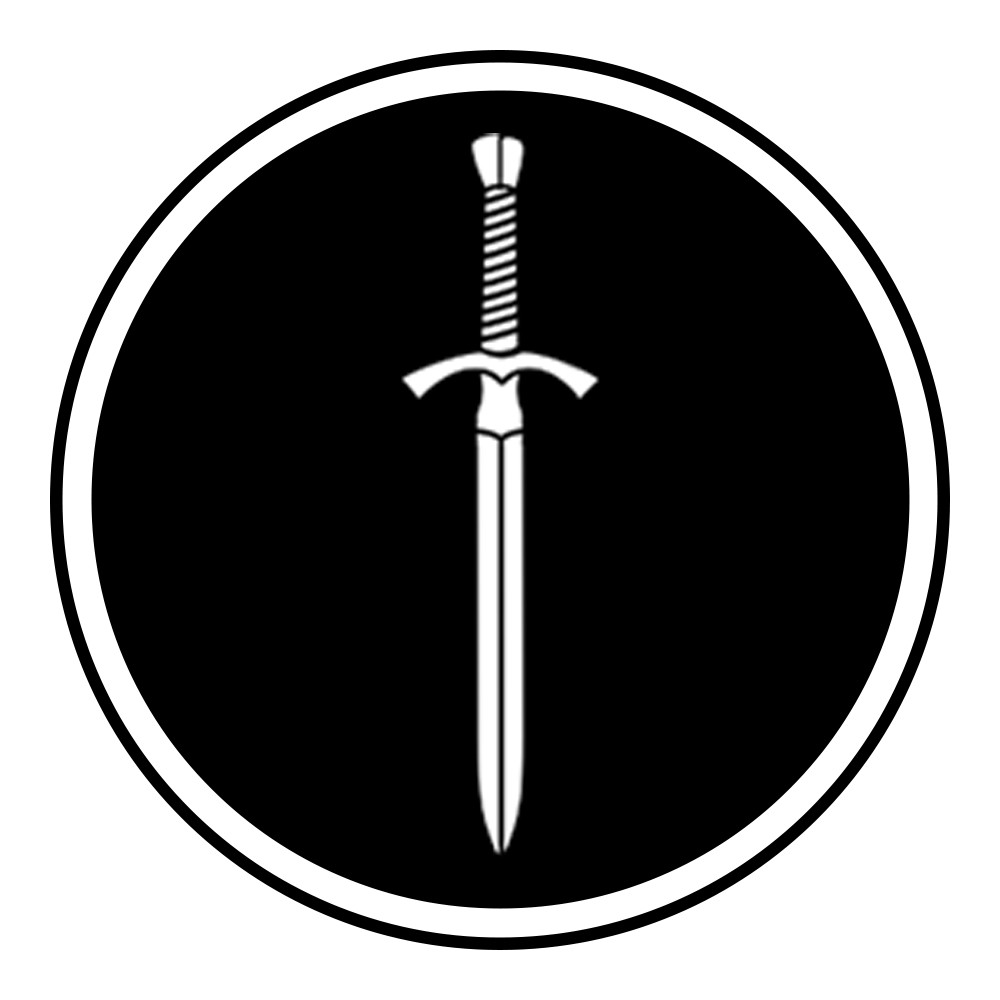
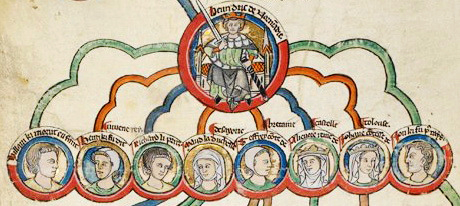
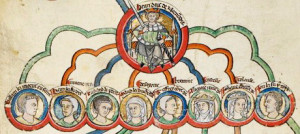
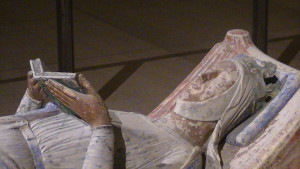
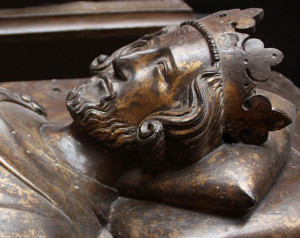
Very interesting! Now I have to compare it to a list of 21st Century names and see which ones are still in use.
Thanks Deby. I love how English names have ebbed and flowed in the last 800 years. Most surprising is how biblical names became commoner later but also how many have remained more or less popular for centuries. Also, very few of these names are truly “weird”.
My understanding is that Lettice is French and the stress is on the second syllable.
Yes indeed, I believe you are quite right. Thanks!
Laetitia in French – the name of Napoleon’s mother
Laetitia in French, the name of Napoleon’s mother.
U are actually so goofy
Napoleon and family were Corsican therefore the language was more Italian than French. When someone commented on this, his mother replied “e vero. La buona parte”
The name Molly should be on here. The name has been used since the 12th century, therefore considered medieval. Not trying to hate on you or anything. 🙂
Thanks Molly, yes it is an old name but did not appear in the studies that ranked the names that were most commonly recorded during this period. You can see the references / sources for the information at the bottom of the article. Thanks for reading!
Cool Names thanks
Thanks for reading.
I needed this for a school project! Thanks!
I needed this for a school project! This has been a lifesaver!
Very helpful thank you
Lifesaver